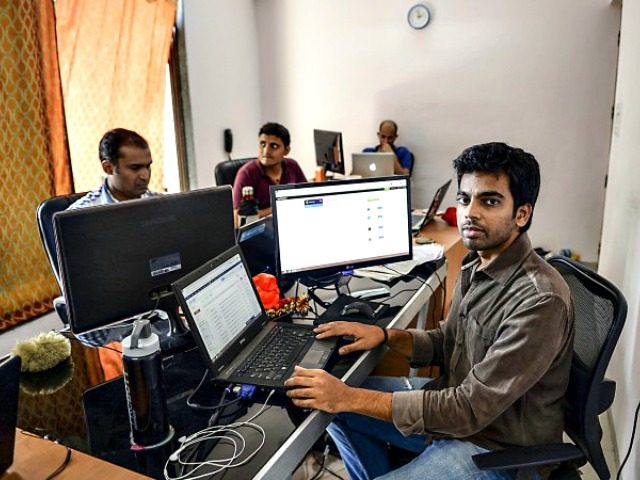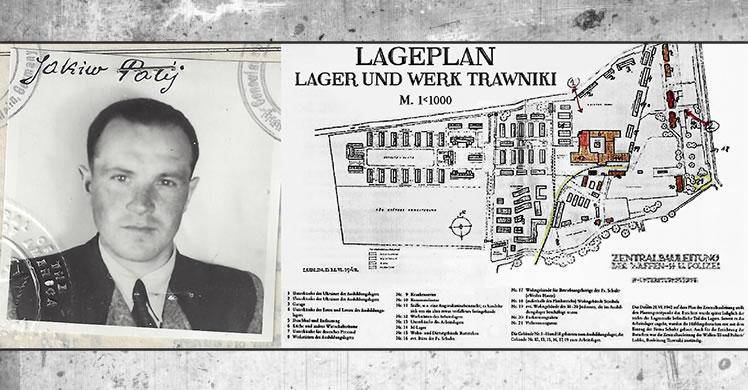In part:
“If you want to go, fine, get out of here. The only way out of here is in a body bag. Whoever wants to go with him better speak up now. We’re not here to play.”
“Then I understood, and we all understood, that we were in big trouble. You don’t know what’s going to happen next, but you have to stay quiet and very serious because they could take any movement the wrong way,” Francisco recalls.
For years, videos of dismembered bodies, shootings, decapitated heads and all types of violence attributed to the CJNG ran through his mind. “I thought a lot about my son,” Francisco says. He ultimately decided to stay.
A Powerful Cartel
The CJNG has grown to become one of the most powerful cartels in Mexico, according to analysts and security forces. The Attorney General’s Office estimates that the cartel maintains a presence in 28 of the country’s 32 states, according to local media reports. The cartel has also established alliances with local criminal groups in the states of Durango, Campeche, Coahuila and Zacatecas.
 photo
photo
The CJNG has also expanded abroad, “with a significant presence not only in the United States and Mexico, but also in Europe, Asia and Australia,” according to the US Drug Enforcement Administration (DEA).
The genesis of this criminal organization, according to Sam Houston State University professor Nathan P. Jones, dates back to the July 2010 death of Sinaloa Cartel boss Ignacio Coronel Villarreal, alias “Nacho Coronel.” He specialized in methamphetamine production in the region around Jalisco. When Mexican authorities killed him, his operations fragmented into several groups. One of them was led by El Mencho. He was able to take advantage of Jalisco’s geographical location near Mexico’s Pacific ports. This allowed him to increase the volume of his business thanks to the sale of methamphetamine in markets in Europe and Asia, and the sale of fentanyl in the United States. Control of the ports was key to the CJNG being able to obtain the resources that allowed them to expand territorially, to corrupt Mexican government officials and to train their assassins as an elite force.
The Training
Francisco’s training camp was in Talpa de Allende, a municipality of just over 15,000 people in western Jalisco. A group of men armed with assault rifles and portable missile launchers loaded the 19 men into luxury trucks and drove them on dirt roads out to a hidden place in the Sierra de Talpa. The first truck stopped, then someone pulled a gun out the window and shot three times, which automatically opened a gate. They all passed and, again, another three shots were fired to signal the gate to close.
Once inside, the armed men took their cell phones and stripped them. “They had some car batteries. They got us wet and made us grab the terminals. So, if you had a GPS [Global Positioning System device] hidden inside you, it would burn. The shock was so strong that I practically peed,” Francisco explained.
The local boss was a young man about 28 years old, according to Francisco. He chose a nickname to address each of them. Then the training began with instructions on how to handle short and long weapons: handguns, AK-47 rifles and rocket launchers similar to the one the CJNG used to shoot down a Mexican Army helicopter in an attack that killed seven soldiers in May 2015.
The instructors let the men know all of the cartel’s rules imposed by El Mencho. They started with those related to firearms.
“Rule number one: Your finger should always be away from the trigger. Otherwise, in front of a cartel leader or high-ranking commander, you could be considered a threat and they could kill you.”
“Rule number two: Always check the safety.”
“Rule number three: Know how to hand over a weapon. Always pass it with the butt of the gun and not the barrel.”
The instructors imposed strict discipline. One mistake could be fatal. As was the case for one of the 19 recruits who nervously failed to put together a gun.
“In the blink of an eye, he killed him. He told us that he wasn’t useful because in a real confrontation, he would panic and put us all in danger,” Francisco said. Then began what the cartel called “the christening.” They all approached the corpse of their recently murdered companion.
“What is the first rule?” the plaza boss asked.
“If there isn’t a body, there isn’t a crime to pursue,” two of the commanders responded.
“Ok, Shaggy, come here. Cut off his hand. You don’t want to do it? Just tell me you don’t want to,” one commander said.
“You knew that if you said no, they were going to kill you,” Francisco recalls. Trembling, he began to cut off the dead man’s hand. Francisco touched his forearm. “I had to do it, you have no choice. I remember the fear, the blood.”
They were going one by one. The commanders saved the most timid group of recruits for the most difficult task: to decapitate the dead man and crush his head with a stone. When the body was severed, they were forced to eat some parts of it.
“There was one recruit who couldn’t eat it and vomited, but they picked up the piece of flesh from the dirt and forced him to eat it.”
These cannibalistic practices described by Francisco coincide with what a group of cartel hitmen arrested last June revealed. They said they did it to become desensitized to violence. The Attorney General’s Office in Jalisco has discovered at least five camps that the cartel used as clandestine training centers and narco-laboratories. Two more have been dismantled in Veracruz and Tabasco.
For Francisco, this was only the first part of a three-month stay in captivity.
*** In Bolivia, where he spent over two years evading justice, he was known as Jafett Arias Becerra, a respectable cattle rancher.  José González Valencia is a man of many names.
José González Valencia is a man of many names.
González Valencia flew in and out of Bolivia multiple times in 2016 and 2017, raising questions about how it was so easy for him to live comfortably as a wealthy cattleman when he was wanted by the United States on charges of conspiracy to distribute large amounts of cocaine.
Bolivian authorities blame Mexico for the lapse, but also admit their fertile Santa Cruz region, known as “Bolivia’s barn,” is a popular hideout for drug traffickers on the lam. They acknowledge that they need to corral criminals like the Shrimp who find safe haven there.
A Cartel in the Crosshairs
The Jalisco Cartel New Generation (Cartel Jalisco Nueva Generación – CJNG) has alarmed authorities in the United States and Mexico with its brutal tactics and rapid growth since it was formed in 2011.
Based in Guadalajara, the capital of the Mexican state of Jalisco, CJNG is behind some of the most notorious drug crimes of the past decade, including the 2011 torture and massacre of 35 rival cartel members in Veracruz and the downing of a military helicopter with a rocket-propelled grenade in 2015. The cartel even uses cannibalism as an initiation rite for new members.
The CJNG now has a presence in most of Mexico and connections in the rest of Latin America, the United States, Asia, Europe, and Australia. It is responsible for trafficking at least five tons each of cocaine and methamphetamine into the United States every month, according to former US Attorney General Jeff Sessions.
Last October, Sessions announced new measures targeting the CJNG, including hefty rewards for the capture of its leaders and economic sanctions against several of the Cuinis. He also unsealed indictments of 11 alleged members of the cartel, including Jose González Valencia.
Sessions called the CJNG one of the five most dangerous transnational criminal groups in the world.
“We are hitting them from all sides and with every weapon we have,” he said at a news conference. “They are in our crosshairs. This cartel is a top priority.”
Like many criminal organizations, CJNG is a family affair. José González Valencia — the man who lived as a cattle rancher in Bolivia — is the brother-in-law of its leader, Nemesio Oseguera Cervantes, who is also known as “El Mencho.”
The cartel’s rise and expansion are due largely to Los Cuinis, which according to US officials is dominated by the González Valencia family.
El Mencho’s wife, Rosalinda González Valencia, and three of her brothers, José, Gerardo, and Abigael, played a dominant role in establishing and operating Los Cuinis, with Abigael serving as “El Cuini” — the top squirrel.
In an interview with the Mexican news magazine Proceso in 2015, a US Drug Enforcement Administration (DEA) official described El Cuini as an intelligent trafficker whose diversification strategy differentiates CJNG from other cartels.
“The ‘Cuini’ focused on partnering with drug traffickers and narco-rebels of Colombia and other South American countries to sell cocaine and other drugs in Europe, without regard to the United States. That made a big difference in terms of profits earned,” he said.
“‘El Cuini’ and ‘El Mencho’ understood that there was more risk … if they were to compete with other cartels for the U.S. market,” another official told the magazine.
José González Valencia took over cartel finances after his brother Abigael was arrested in February 2015, according to the Center for Investigation and National Security, a Mexican intelligence agency. He was also allegedly responsible for providing security for the leader, El Mencho, making alliances with criminal groups in Asia and Europe, and establishing relationships with arms traffickers in the United States and Central America, Mexican newspaper La Jornada reported.
But despite his high profile, José González Valencia moved easily from Guadalajara to Bolivia, entering the country for the first time later that year. His ticket was a Mexican passport he had obtained in Guadalajara in 2013 under the name Jafett Arias Becerra.
It is unclear what he did to obtain that document, but it bought him years of freedom. In 2016, the year after he first came to Bolivia, he used it to obtain a Bolivian ID for foreigners. He was also granted a temporary stay valid for one year and applied for a second that would have been valid until March 2019.
Court records show American officials had been aware of his alias since January 2016. But according to Bolivian authorities, Interpol never issued any alerts for “Jafett Arias Becerra.”
González Valencia was finally caught in December 2017 — not in Bolivia, but in Brazil. He had flown there with a Bolivian friend, Mario Genaro Soljancic Fernandez, a vendor of veterinary products for cattle.
González Valencia was planning to meet his wife and children, who live in the United States, for a holiday in the tourist hub of Taíba on Brazil’s northeastern coast. Under Soljancic’s name, they rented a car and a seaside villa, complete with a basketball court and a small swimming pool, for 15 days.
In response to a US arrest request passed on by officials in Brasilia, police in the city of Fortaleza identified the rental car and then spent days monitoring security camera video until they found it, said Aldair da Rocha, the officer in charge of the operation. González Valencia was arrested at the stores in front of Beach Park, a nearby water park and tourist resort, on December 27, 2017. He was carrying his Bolivian ID card. Read the full fascinating wild story here from InSight. Amazing work.




 José González Valencia is a man of many names.
José González Valencia is a man of many names.




